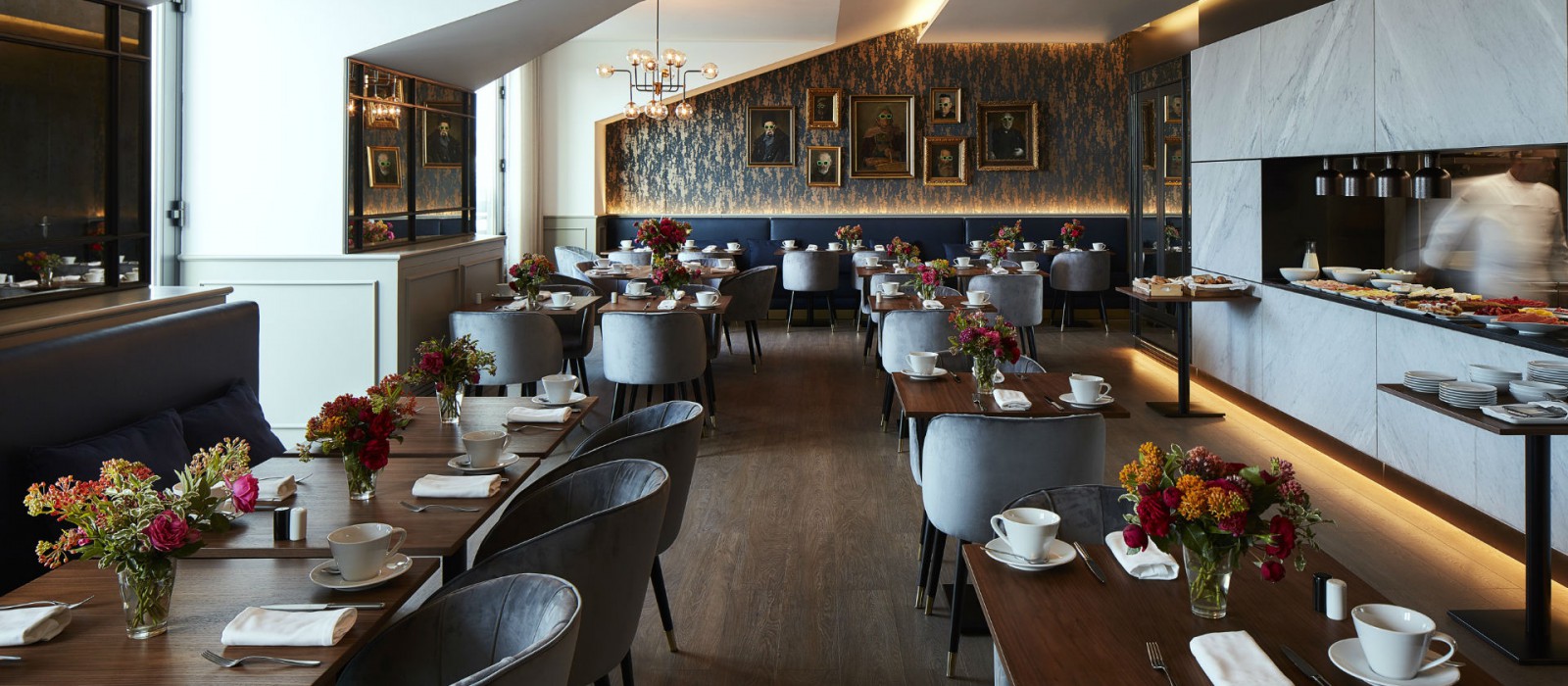Research reveals drop in popularity for ‘celeb branded’ in-hotel restaurants and 76% of guests would eat at a hotel restaurant they aren’t staying in
Leading communicator in progressive thinking and business opinion, EP Business in Hospitality, has jointly hosted a topical business forum made up of world-class hoteliers, in collaboration with HGEM (guest experience management firm), to pose the question: Are hotel restaurants relevant? The debate, which covered how customers currently view hotel food and questioned whether hoteliers need to ‘fall back in love’ with F&B, was triggered by new research conducted by HGEM, which revealed a number of current consumer trends around the guest booking experience, namely, that only 5% of customers cited the ‘in-hotel’ restaurant as a key influencer in their decision to book a room.
The research, which independently surveyed almost 600 UK diners, also revealed that 76% of guests would eat at a hotel restaurant that they weren’t staying in, with almost a third stating this is due to over-priced and poor quality hotel food. Raising questions of the relevance of hotel restaurants today and highlighting a possible decline in the popularity of in-hotel celeb chef branded eateries, a further 83% of hotel guests said they weren’t influenced by the inclusion of on-site celebrity branded restaurants and would choose to eat at a hotel restaurant purely based on a good reputation. Only 11% of guests said they would book into a hotel to have their dinner cooked by a celebrity chef.
The stats also revealed that guests booking into five star hotels want the full experience with 15% saying the on-site restaurant is more important to them that their room. The biggest influencers for guests booking into hotels were the quality of the room itself (95%) and a further 48% of guests said the location of the hotel is the most important aspect when booking, but should hotels invest more in their restaurants?
Chris Sheppardson, CEO at EP Business in Hospitality who jointly hosted the event, commented: “When it comes to eating out, it seems that reputation and quality still make the grade and in the case of hotel restaurants, it’s no different. This new research has shown on one hand, that a good restaurant is important to people, but when in relation to making a hotel room booking, it doesn’t play a central role in the decision-making process, far from it. Yet this seems like a lost revenue opportunity; the question begs, do hotel restaurants need to regain their relevance again and become a much bigger element of the overall guest experience?”
The lively, thought-provoking debate, which was led by Michael Gray at EHMA and Adam Elliott at Paragon Hospitality, touched on the need for hotels to focus on the whole guest experience and to forge stronger partnerships that represent their individual hotel effectively, to engage and attract wider audiences. Adam Elliott argued that a restaurant mentality is about engaging customers and that too often, hotels are focused on room hire and costs rather than engagement. While Michael Gray argued for hotels to think more unified and cited an example of a hotel that chose not to promote its named restaurant on its website as it was run completely separately to the hotel.
Other key questions and highlights from the debate included:
- Should asset managers work in greater partnership with hoteliers and trust their ability to run great operations and lead their businesses effectively?
- Many hotels could possess far more effective F&B operations that would generate more engagement and greater revenues, but often internal processes hinder the provision of great service engagement.
- There is a need for greater strategic alliances and partnerships that provide greater hospitality levels to guests, which in turn, impact positively on the above research results.
- The debate questioned the ‘outsourced model’ for hotel restaurants and whether it really works?
- Do leases work both for and against a hotel?
- Are the days of restaurants with leading name/celebrity chefs in decline?

